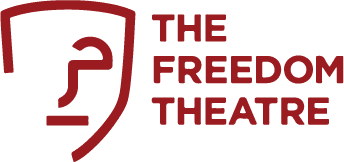Theatre of the Oppressed is a unique theatrical methodology that engages communities in critical inquiry, experiential learning and creative transformation through participatory theatre. Developed by Brazilian theatre practitioner Augusto Boal, it is a widely documented approach that has helped achieve significant social and political transformation in countries such as India, Afghanistan, Democratic Republic of Congo and elsewhere. In contrast to verbal debate and didactic presentation of information, Theatre of the Oppressed offers individuals and communities an embodied and creative means through which to actively participate in creating social change.
Over the course of a 3-month seminar, applied theatre practitioner Christine Baniewicz will introduce acting students at The Freedom Theatre to Boal’s cannon of techniques.
– Together, we will use the language of theatre to explore the social issues that each of the students feel passionately about. We will rehearse alternatives to oppressions that feel inevitable; we will challenge our perceptions of power. Always working in the spirit of democracy, curiosity, and imagination, we will create short Forum Theatre performances that we will share in January at the end of the seminar. I am thrilled to be working with such talented actors here in Jenin, and am enjoying the opportunity to contribute to the beautiful tome of politically conscious work The Freedom Theatre is famous for, says Christine.
Christine Baniewicz is a playwright, composer and facilitator of community-engaged theatre. She has a Bachelor’s degree in Theatre Studies and Music Composition from Louisiana State University, and currently coordinates all web-based communications for the traveling theatre-arts organization, ImaginAction. Christine’s original plays and incidental scores have been performed in Louisiana, North Carolina, New York and Northern Ireland. She also gives applied theatre workshops to encourage dialogue and creative transformation around social justice issues. She has worked with actors on rehearsal techniques, educators on integrating drama into the classroom, and at-risk youth both in the US and abroad.
